Entertainment
Heated Tony Yayo, Uncle Murda Incident (Videos)

Ja Rule has spoken out after viral footage showed a heated plane incident between him, Tony Yayo, and Uncle Murda.
RELATED: From Friends To Foes? Here’s A Look Back On Ari Fletcher & Jayda Cheaves’ Relationship — Before The Viral Lil Baby Claims (VIDEOS)
More On The Footage Of The Heated Plane Incident Between Ja Rule, Tony Yayo & Uncle Murda
On Tuesday, February 9, footage surfaced of Ja Rule seemingly being heckled by Tony Yayo and Uncle Murda while seated on a plane. The initial three-part footage was circulated by Instagram user @livebitez and showed Murda calling Ja a “sucka” while Ja returned the insult. Furthermore, a second clip showed Yayo calling Ja soft after it appeared that he had been removed from the plane.
Click here to see the initial NSFW footage.
Ja Speaks As Additional Footage Surfaces
By Friday evening, Ja had taken to X, formerly known as Twitter, to shed more light on what allegedly went down. Furthermore, he wrote that he “popped” on Murda and Yayo, calling them “punks” and adding that he allegedly threw the plane pillow at Tonya Yaya’s head, knocking his hat off.
Then, on Tuesday, February 10, TMZ obtained additional footage that appeared to fill in some blanks regarding the incident. The footage showed Ja defending himself and seemingly wanting to throw down with the fellow rappers. Per the outlet, Ja and Yayo were briefly removed from the plane, and witnesses saw as Yayo alleged he did nothing wrong.
Per TMZ, Ja rebooked a later flight and told the outlet, “These f*****g clowns… I saw them when I got on. I was laughing like, ‘Look at these two clowns’ … They look like they saw a ghost deer in the headlights, they always talking s**t, so I addressed them…”
See the additional footage of the heated plane incident below.
Social Media Weighs In On The Heated Plane Incident Between Ja Rule, Tony Yayo & Uncle Murda
Social media users weighed in on the heated plane incident involving Ja Rule, Tony Yayo, and Uncle Murda in TSR’s comment section.
Instagram user @sheree_nicole_ wrote, “They’re obsessed with him”
While Instagram user @sizzlingwithsizzy added, “I love that Ja is by himself, nd stood on business. Idc what nobody says 🤷🏾♀️”
Instagram user @tyriccuffie wrote, “History shows Ja never ran and never backed down”
While Instagram user @bonniebeauty05 added, “See this is why you don’t believe a half sided story 😂😂😂”
Instagram user @royal__tee105 wrote, “They’ve making it seem like they punked him & made him leave capping old men”
While Instagram user @sophisticated__fun added, “Their obsession with Ja needs to be studied atp”
Instagram user @e_whitehead365 wrote, “Gotta give it to JA, he didn’t back down & they didn’t pop”
RELATED: Social Media Is Crackin’ UP At Viral Footage Of Boxer Jarrell Miller Getting His Wig — Yep, His Wig — Knocked OFF In The Ring (WATCH)
What Do You Think Roomies?
Entertainment
Emma Slater & Alan Bersten Comment On What ‘DWTS’ Con Will Bring To Fans

Times Square got a dose of ballroom romance this morning as “Dancing with the Stars” pros (and real-life couple) Emma Slater and Alan Bersten clocked in for a pre-Valentine’s Day “shift” at Raising Cane’s. Fresh off the “Dancing with the Stars: Live!” tour, the Mirrorball Trophy winners brought their chemistry straight to the front counter at Raising Cane’s Global Flagship in Times Square, serving fans hand-battered, cooked-to-order Chicken Fingers while turning the restaurant into a full fan moment.
Article continues below advertisement
Emma Slater And Alan Bersten Turn Raising Cane’s Shift Into A Valentine’s Day Date

From cheersing Cane’s cups to dancing on the counter, Slater and Bersten embraced the Cane’s experience. The couple snapped photos with fans, hung out in the Caniac Corner, and even shared a playful “Lady and the Tramp” moment with a crinkle-cut fry, because no Raising Cane’s shift is complete without a little fun.
Between handing out Box Combos, the duo chatted about Valentine’s Day, life on tour, and why Cane’s makes for a surprisingly perfect date spot. “I love that we get to dance together in front of a crowd on Valentine’s Day this year,” Bersten said. “It feels really special. We even have a number together, which makes it even better.”
Article continues below advertisement
Slater added that their Valentine’s plans are more low-key than lavish. “Nothing says Valentine’s Day like watching us dance,” she said. “We’ll probably find a coffee shop, sit, chat, and decompress. I’m romantic, though. I already bought him chocolates.”
Article continues below advertisement
Slater And Bersten Say ‘DWTS’ Convention Will Bring The Ballroom To Life

The couple also opened up about the recently announced “DWTS” Convention, calling it “an immersive fan experience that brings the ballroom to life” with live panels, Q&As, shows, and exclusive merch, a major win for longtime fans of the franchise.
The epic three-day fan convention is set to take place in Palm Springs, California, from Friday, July 31, to Sunday, August 2. Alongside Slater and Bersten, fans can expect appearances from other pros, including Val Chmerkovskiy, Witney Carson, Gleb Savchenko, Daniella Karagach, Brandon Armstrong, Jenna Johnson, Sasha Farber, Rylee Arnold, Pasha Pashkov, Sharna Burgess, and more.
Article continues below advertisement
Article continues below advertisement
Inside ‘DWTS’ Con

According to Ryan O’Dowd, President of Unscripted at BBC Studios and executive producer of “Dancing with the Stars,” the convention is designed to capture everything that makes the franchise so beloved.
“’Dancing with the Stars’ has always been about more than just competition. It’s about courage, connection, and the unforgettable moments that bring people together through dance,” O’Dowd said. “For years, our fans have been clamoring for even more ways to engage with the show, and we’re thrilled to have created this rare and immersive opportunity to experience the magic, the music, the movement, the emotion, and the heart that continues to make this show so special.”
Tickets are expected to go fast. General on-sale begins Saturday, February 14, at 7 a.m. ET via DWTSCON.com.
Slater And Bersten’s ‘DWTS’ Love Story Was Years In The Making

“Dancing with the Stars” fans have been watching Slater and Bersten’s story unfold for years, even if they didn’t realize it at the time. Both pros rose through the “DWTS” ranks as troupe members before earning full-time pro spots, spending season after season dancing side by side, touring together, and becoming staples of the franchise.
Slater built her reputation as one of the show’s most expressive performers, while Bersten emerged as a standout thanks to his unique technique and crowd-pleasing routines, a run that eventually led to his Mirrorball Trophy win. But somewhere between rehearsals, live shows, and nonstop tours, the professional connection turned personal.
Article continues below advertisement
“I think the second we went public, it was like, ‘Oh, nothing else matters,’” Bersten previously said on the “House of Maher” podcast. “I want everyone to know that Emma’s my girl, and I know she wants everyone to know that I’m her man.”
Emma Slater And Alan Bersten Call Raising Cane’s A Valentine’s Day Win

Off the dance floor, Slater and Bersten say one of their favorite parts of touring together is discovering new food spots in each city, making their Raising Cane’s stop feel especially on brand. “We’re foodies, so this is totally up our alley,” Slater joked. “It’s honestly killing me that Cane’s is right here and I haven’t eaten it yet!”
Bersten didn’t hesitate when asked about his go-to order. “I’d totally get a full cup of Cane’s sauce,” he laughed. “The little cups aren’t enough for four Chicken Fingers.”
Article continues below advertisement
Both pros agreed the hand-battered Chicken Fingers, marinated for at least 24 hours and cooked to order, are the real MVP, and that Cane’s welcoming, comfort-food vibe makes it an easy Valentine’s Day win. “Cane’s just feels friendly,” Bersten said. “It’s the kind of place you can relax, enjoy great food, and just have fun together.”
Entertainment
Tara Lipinski on Best Winter Skincare Tips and The Traitors Strategy

Tara Lipinski is all about glowy skin.
Lipinski, 43, exclusively opened up to Us Weekly about her partnership with Thayers and their new 80 Hour Milky Moisturizer which made her skin as dewy as ever. “I’ve used Thayers before, but for the last couple months, I’ve been using them strictly, and I am now 100 percent hooked,” the Olympian ice skater told Us. “For me, the dry weather and the skating and being in the cold that [affects] my skin,” Lipinski noted. “So I’ve been loving using their products and their toner.”
Lipinski, who returned to the 2026 Olympic Games in Milan to serve as a commentator, made sure to pack her Milky Moisturizer with her. “I’ll use it without makeup, and then I use it before I put on all of my makeup,” she told Us, gushing that it’s become her go-to.
Her current skincare routine consists of using Thayers’ PH Balancing Gentle Cleanser, which she swears by. “There are so few cleansers I can find that clean my skin without irritating it,” she said. Lipinski especially relies on the product because it gets “rid of all” her “makeup and grime” without stripping her skin. Next, she goes in with the Milky Moisturizer.
“I’ve always been sort of a skincare junkie, and loved trying so many different things, but over the years, I’ve found my staples and what works with my skin,” Lipinski said.
Lipinski also reflected on getting older and seeing the “effects” that cold weather has on her skin.
“I just feel like being in the cold weather, I’ve always tried to really moisturize and hydrate, just because that’s where I live my life,” Lipinski shared with Us.
If she’s ever spending extra time on the rink and feels even more dry than usual, Lipinski has a hilarious hack: putting diaper paste on her face. “If my skin is ever really red or irritated, I will use the zinc oxide [paste] and it transforms your skin overnight,” she said.

Another thing Lipinski is adamant about is applying sunscreen every day on her face, neck and hands. She also takes extra precautions while getting her nails done with a UV lamp and wears gloves.
When she’s not hitting the ice or commentating for the Olympics, fans can watch Lipinski on season 4 of The Traitors, a murder mystery game hosted by Alan Cumming. She also opened up to Us about how the “psychological” game compared to being an Olympic athlete.

“The pressure of an Olympic Games is unlike any type of pressure there is,” she said. “But I will say that this was a new type of pressure. It’s psychological pressure and torment that Alan would bestow on us every single day.” She also noted that her and Johnny Weir’s strategy in the game was to act like strangers so that no one would detect their secret alliance, even though they’ve been friends for years and serve as Olympic commentators together.
“I’m a competitor, so I think that’s the strategy that I had, and the strategy that Johnny and I had,” she explained. “We put a lot of thought into [pretending not to be close]. Obviously, my game play was to kind of be under the radar, but be part of the mix.”
She added, “Johnny and I were like, ‘We are not ever breaking character on this. We barely know each other.’ Even when he gave me a hug in the first episode, you kind of see he’s almost startled, because I even thought that was too warm.”
Entertainment
Kaley Cuoco struggled on “The Big Bang Theory ”set“ ”after getting Botox for the first time: 'Nothing moved'
:max_bytes(150000):strip_icc():format(jpeg)/kaley-cuoco-01-021026-697a6401432b41a18e255c992972919a.jpg)
“I couldn’t believe how bad it looked,” the actress confessed.
Entertainment
Figure Skater Maxim Naumov’s Emotional Journey to the 2026 Olympics
Maxim Naumov began figure skating because of his parents. Almost exactly one year after losing both of them in a plane crash, he will make his Olympic debut for Team USA.
Naumov, 24, was with his parents, Vadim Naumov and Evgenia Shishkova, at the U.S. Figure Skating Championships in Wichita, Kansas in January 2025, but they stayed behind after his fourth-place finish to attend a developmental clinic.
Vadim and Evgenia flew home on American Eagle Flight 5342, which was involved in a mid-air collision with a Black Hawk helicopter over the Potomac River in Washington, D.C. They were among the 67 people who died in the accident.
In the immediate aftermath of the tragedy, Maxim did not know if he would ever lace up a pair of skates again, let alone compete on the world’s biggest stage.
“All I wanted to do in that moment was lay in my bed or lay on my couch and just rot, essentially,” Maxim told The New York Times in January. “And it was a moment where I knew that the complete opposite of that was the path.”
As the weeks went on, Maxim surrounded himself with family friends from his hometown of Simsbury, Connecticut, making sure he had company 24 hours a day.

Maxim Naumov Photo by Matthew Stockman/Getty Images
“I know a couple who is with him right now,” said Ekaterina “Katia” Gordeeva, a former teammate and close friend of Maxim’s parents, in a February 2025 interview with People. “They weren’t even in Washington yet, but … that morning [of the plane crash], we all connected right away, all the people from Simsbury.”
Though it took him a while to skate again, he was quick to take the mantle from his parents in leading their development program for children in Boston. By watching them, he was reminded of the passion he had for the sport since he first stepped onto the ice at age 5.
Fittingly, he qualified for the Olympics by returning to the U.S. Figure Skating Championships in January 2026, this time in St. Louis. He placed third, earning a spot on the team.
Maxim brought a photo of his parents to the press conference after the event and held it up for the cameras.
“We did it,” he said. “We did it together.”
Maxim added that he thought of his parents “immediately” when he learned he had qualified.
“I wish they could be here to experience it with me, but I do feel their presence, and they are with me,” he said.
Maxim added, “I came into this competition thinking how grateful I am to even have the ability to compete and the fact that I overcame so, so much. Looking back, even not being able to lace up my skates and not knowing if I was going to compete, let alone skate, what I did [Saturday] — I don’t even have the words, honestly, of just what I had to overcome to be here.”
Two weeks later, on the one year anniversary of his parents’ deaths, Maxim remembered them with a tribute via Instagram.
“It’s hard to believe that it’s already been one full year. The most difficult year of my entire life,” he wrote alongside a photo of them. “I still find myself waking up some days and just wondering why? How could this all have happened? For what reason? Why were they taken away from me so soon?”
He continued, “Unfortunately, there are always more questions than answers. But, despite all of that I get ready, put on my coat and head out the door. Every. Single. Day. Because I have a job to do. I am quickly reminded of the goal we set out to achieve when I was 5 years old. Together. As a family.”
Entertainment
“The Mummy” sequel starring Brendan Fraser and Rachel Weisz gets major update
:max_bytes(150000):strip_icc():format(jpeg)/The-Mummy-Returns-Brendan-Fraser-Rachel-Weisz-021026-90af133eba47424fbaead05437f537c8.jpg)
Fraser’s fourth “Mummy” film will hit theaters in May 2028.
Entertainment
Victoria Woods Threatened To Assault Her In 2015

GloRilla has spoken on her sister Victoria Woods allegedly threatening to assault her with a firearm after Woods’ apparent arrest warrant from 2015 surfaced online.
RELATED: Here’s What GloRilla Has Previously Shared About Her Parents, Siblings & Upbringing In Memphis (VIDEOS)
GloRilla Speaks On Sister Victoria Woods Allegedly Threatening to Assault Her With Firearm After 2015 Arrest Warrant Surfaces
As The Shade Room previously reported, on Monday, February 9, GloRilla went live to address the recent events with her sister, and while streaming, she mentioned that an incident between them is on public record.
“I ain’t gon’ talk about how you got me sent to jail for a whole week — we ain’t gon’ talk about that. How you tried to shoot me and set me up. You got me sent to jail — we ain’t gon’ talk about none of that? Aight. I ain’t gon’ talk about half the stuff you did, just leave it alone,” Glo said, speaking directly to her sister.
Furthermore, Glo seemed to imply that it would be best for her sister to continue doing her and keep her “out of it.” Additionally, she shared a message for other family members who appear to agree with Woods in feeling that Glo should financially provide for them.
“Even before I was rich, I always been the one to never ask for s**t,” she said. “I always been the one to do s**t for motherf*****s. So the ones that feel where she coming from, y’all don’t know s**t ’cause y’all never been the ones to have s**t.”
See what the rapper said below, and swipe to see the apparent 2015 arrest warrant, which appears to state that Woods was cited for domestic assault of GloRilla in May 2015. Additionally, the document alleges that Woods threatened to harm GloRilla with a gun, saying, “shut up before I shoot you.” Per GloRilla, Woods did not point the gun at her and only made threats. Nonetheless, Woods was reportedly transported to jail.
Social Media Weighs In On Apparent 2015 Assault Threat & Arrest
Social media users weighed in on the apparent 2015 assault threat and arrest involving Victoria Woods and GloRilla in TSR’s comment section.
Instagram user @simmamas wrote, “I had a feeling her sister put hands on her before but this takes things to a whole new level. I see why she wants nothing to do with that sister 😢 Glo keep pushing, we love you 😢”
While Instagram user @ritadelane added, “Glo keep your polish baby & don’t feed into it!! STAY ON TOP BABY!! YOU SAID WHAT YOU SAID, WALK AWAY PLEASE!! ❤️ 💯”
Instagram user @harvest9318 wrote, “Glo keep winning – you work hard for your cash – the music business is not easy – Soar your fans are proud if you! Hire an employment coach for siblings to prepare them to work for themselves and or be employable !!!”
While Instagram user @moon_lyric77 added, “She don’t owe her family a damn thing.”
Instagram user @theoneandonlymscarrie wrote, “2 sides to every story and this is getting worse,”
While Instagram user @desskardashian added, “Shiddd Glo aint wrong”
Instagram user @datopbreagain2 wrote, “Imagine defending yourself because you’re doing what you want with your money. That’s crazy asf.”
Here’s What GloRilla Shared Amid Speaking On Victoria Woods Allegedly Threatening to Assault Her With Firearm
As The Shade Room previously reported, on Monday, February 9, GloRilla also addressed Victoria Woods airing her out for allegedly neglecting their parents and family. Ultimately, Glo got her mom and dad on the phone, and each parent thanked her for being present and supportive of them.
Elsewhere during the live, Glo sparked questions about her sister’s mental state, and reiterated that she won’t be helping those with whom she doesn’t have a good relationship.
Since then, Victoria Woods has seemed to imply that her mother may be playing both sides of the situation, and shared alleged texts appearing to show her mom being upset with GloRilla.
On Tuesday, February 10, Woods shared her latest message about their back-and-forth via Facebook.
“how is it when she go to interviews and talks about our struggles it’s koo but when i do it it’s a problem? and she been mentioning me im the 5th child… yall just justify her then yall will say ohh she hasn’t mentioned your name of course she not cause she don’t want yall knowing anything about us and don’t want the truth to be revealed…yall labeling me as a comedian but every comedian actually make jokes off of hurt,” Victoria Woods wrote.
RELATED: Victoria Woods Calls Out Her Mom & Drops Alleged Text Receipts After GloRilla Goes Live With Their Parents Thanking Her For Her Help (VIDEOS)
What Do You Think Roomies?
Entertainment
Jelly Roll Goes for a Jog in Hollywood, on Video
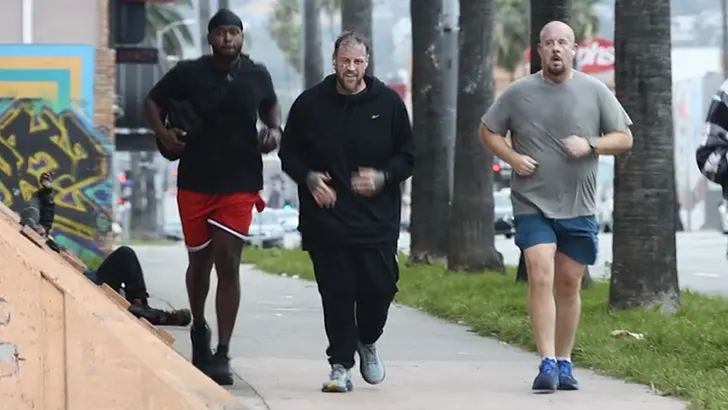
Jelly Roll
I Run Hollywood!!!
Published

Framework Media
Jelly Roll is sharing the secret sauce … ’cause it looks like running and exercise are a big part of why he’s been able to shed a couple hundred pounds and keep the weight off.
Check out this video of the “Bloodline” singer out for a jog Tuesday morning in Hollywood … it looks like he’s working up quite the sweat and getting his heart rate up.
Jelly had a couple jogging buddies with him too … seems he got his own little run club here.
Don’t get it twisted … Jelly is no Usain Bolt. But props to him for hitting the pavement and putting in the work!
Jelly was looking super slim a couple weeks ago at a pre-Grammy party in Los Angeles … and in October 2025 he announced he dropped almost 200 pounds, slimming down from 540 to 357.
TMZ.com
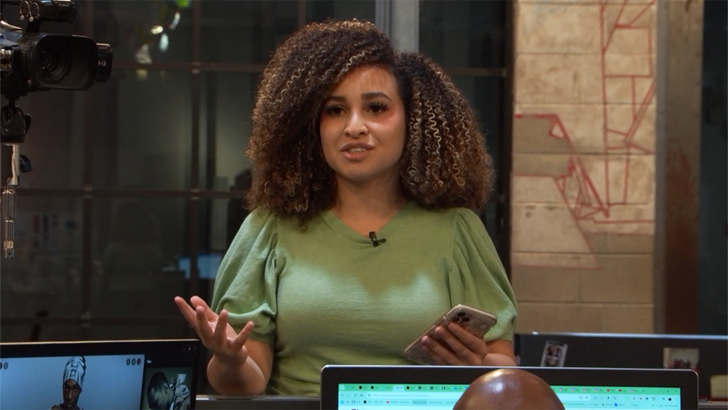
He says he’s living a healthier lifestyle these days … and jogging is part of his recipe for success.
Sign up for another 5K, Jelly!!!
Entertainment
4 Greatest Thriller Movies on Netflix Right Now

While Sia may have believed in a cheap thrill, movie lovers tend to love a great thrill. A thriller that is. The wide-spanning genre has given audiences a chance to be glued to their seat as they await the juicy twists and turns coming their way. Whether the thriller be a mystery, an action-adventure, or a crime drama, the ability to keep an audience engaged is the trick for films that live under that umbrella.
With so many titles on your Netflix list, it can be difficult to know what to watch next. If you know you’re in the mood for a thriller, let us help you out with four excellent titles that provide a vast range of thrilling sensations. From classic characters to real-life individuals, portrayed by some of Hollywood’s finest, these titles are perfect for your next dive into the world of thrillers. Whatever you fancy, if you’re looking for something to make your adrenaline pump, these movies will satisfy your needs.
1
‘Caught Stealing’ (2025)
While we’ll talk about a different kind of king later, Austin Butler, the actor who formerly portrayed The King, has been moving swiftly into action films as of late. Joining forces with the legendary Darren Aronofsky, Butler proves his turn into a complete Hollywood leading man in Caught Stealing. Based on the novel of the same name by Charlie Huston, Caught Stealing follows Hank Thompson (Butler), a former baseball star-turned-bartender who, after agreeing to pet sit for his neighbor, Russ Miner (Matt Smith), unwittingly runs afoul of New York City’s criminal underbelly as he’s pursued by various gangsters searching for a mysterious item. A violent and chaotic dark comedy, Caught Stealing brings the vibrant city circa 1998 to life through an array of oddball characters.
With a stacked cast of stars, including Regina King, Zoë Kravitz, Liev Schrieber, and Bad Bunny, among others, Caught Stealing became a sleeper hit of 2025. A throwback thriller of sorts, Caught Stealing proves that Butler has more charisma than we’re prepared for. Through fast action and stellar performances, Caught Stealing ticks all the right boxes for a perfect thriller. Though it may not be peak Aronofsky, it will certainly satisfy your itch.
2
‘Sew Torn’ (2024)
Having first blown up after appearing in the 2024 South by Southwest Film Festival, Sew Torn helped establish Freddy Macdonald as a “wunderkind” filmmaker. The dark comedy thriller follows Barbara (Eve Connolly), a grieving, isolated Swiss mountain seamstress on the verge of bankruptcy. After stumbling upon a botched drug deal, a suitcase of cash, and a bunch of injured men, her split decision at the scene of the crime leads to drastically different outcomes along the way. Exploring how Barbara’s different, split-decisions create three alternate (and increasingly dangerous) timelines, Sew Torn is a bombastic film that rightly makes Macdonald a director to keep an eye on.
Stitching together a wild ride after a mundane quest, Sew Torn‘s ability to present the repercussions of the three paths — commit the perfect crime, call the police, or drive away — further pushes Barbara’s crusade to save her store to the highest of stakes. Expanded from Macdonald’s short film of the same name, Sew Torn balances whimsical, if not absurd, moments with tense and thrilling elements that keep you gripped. We’ve all pondered the “what-ifs” in our own lives, but Sew Torn pushes it to extremes in a genius manner. This film is genuinely unlike anything you’ve witnessed before.
3
‘Skyfall’ (2012)
For some diehard James Bond fans, the Daniel Craig era of 007 started off tepid, but by the time we reached Skyfall, the reactions soon changed. Perhaps the strongest of his tenure, Skyfall follows the MI6 agent after an assignment goes horribly wrong. Bond’s loyalty to M (Judi Dench) is tested when a terrorist attack on MI6 forces him to track down a villain from M’s past, determined to destroy everything they hold dear. With MI6 compromised inside and out, Bond is aided by a field agent, Eve Moneypenny (Naomie Harris), as he follows a trail to one of the most vile villains, Raoul Silva (Javier Bardem), who is dead set on settling an age-old score. Richly dark and twisted, thanks in part to Barden’s superb and ferocious villainy, Skyfall is James Bond at his finest.
Even if you enter the James Bond universe for the first time with this film, Skyfall will likely get you hooked, as you have the iconic hero take on the most sinister of villains. As the story unfolds, Bond must face the reality of MI6 and what it truly means to him. Is it worth fighting for? Skyfall is a wonderful epic, bringing Bond into the modern age with technology while still maintaining the integrity of the past. Solidly directed by Sam Mendes, Skyfall is a sexy, riveting, dangerous thriller. If you can hear Adele when you see the title of the film, that’s a good sign.
4
‘The King’ (2019)
Come Oscar night, Timothée Chalamet may be a new king in Hollywood, but before then, he played a historical king in the 2019 epic, The King. Directed by David Michôd from a script by Michôd and Joel Edgerton and based on several of William Shakespeare‘s Henriad plays, the drama tells the story of young Hal (Chalamet), a reluctant prince who inherits the English throne as Henry V upon his father’s (Ben Mendlsohn) death. Putting the focus on Hal’s navigation through palace intrigue, the chaotic wars, and the burdens of leadership, The King is a “rise within the ranks” story as you’ve never seen before.
Renowned for its gritty and realistic depiction of medieval warfare, The King is a massive epic that is stunning to behold. Perhaps an underrated period drama, the hostility of palace politics and war-torn terror allows The King to tackle every aspect of this carouser-to-warrior king story. Like Shakespeare’s own take on the tale, The King is inspired by a true story that honors Shakespeare while putting forth something refreshing through a modern lens. That said, tried-and-true historians found the film to be more of a work for entertainment. Nevertheless, The King boasts a brilliant cast that includes Sean Harris, Lily-Rose Depp, and Robert Pattinson. The King is impressive filmmaking through and through.
Entertainment
Tell Me Lies Star Defends Controversial Onscreen Reveal Before Finale

Tell Me Lies is getting ready for its potential series finale by putting out its most toxic episode yet — and one of the stars is defending that controversial twist.
During the Tuesday, February 10, episode of the hit Hulu series, Evan (Branden Cook) was desperate to win back Bree (Cat Missal), so he took advice from an unexpected source: her toxic ex Oliver (Tom Ellis). Oliver suggested that Evan make Bree rely on him, which inspired Evan to get Bree’s alcoholic mother drunk so his girlfriend would need his help.
“His version of the best isn’t great,” Cook, 31, exclusively told Us Weekly about Evan’s turn to the dark side. “Usually children without guidance make other mistakes.”
Cook expressed excitement at getting to push boundaries with his role this season.
“I was causing a little chaos. It was fun, though,” he noted. “I was excited to see that. I was excited to get in on some of that toxicity and do a little manipulation of my own. When [showrunner] Meaghan [Oppenheimer] first told me, I was like, ‘Let’s do it.’”
Based on Carola Lovering‘s novel of the same name, Tell Me Lies follows the messy relationship between college students Lucy (Grace Van Patten) and Stephen (Jackson White). Season 3, which premiered in January, took a turn when Evan’s ex Bree secretly sparked a romance with his friend Wrigley (Spencer House).
“It was an adjustment — obviously — just in terms of where does that leave everything and how do we work through this triangle now,” Cook shared with Us. “How does that affect everybody’s relationship?”
Cook called it “fun” getting to connect the dots. At the same time, he joked that the reveal meant fewer people are rooting for Bree and Evan.
“Nobody is rooting for Evan ever. But it was cool and it’s funny,” he quipped. “Any time you add an element like that, it makes the job a lot more fun. The more drama, the better.”
Missal, meanwhile, praised Tell Me Lies for thinking outside of the box.
“Honestly, I think [Bree and Wrigley’s] relationship offers the dynamic of the show a bit of relief. I think people were yearning for that and I think the writers were so smart in doing that,” she told Us. “It’s a really beautiful thing.”
Missal teased how the fictional relationship will play out, adding, “For Bree, she’s just searching for security and searching for a truth that she’s not getting with most of these relationships in her life. And Wrigley opens that door a little bit for her.”
Elsewhere in Tuesday’s episode, Wrigley and Bree were making plans to break up with their respective partners so they could start dating. But Wrigley’s attempt to break up with Pippa (Sonia Mena) took a turn when she asked him to sleep with her one last time … to awkward results.
While Hulu has yet to announce Tell Me Lies‘ future, Oppenheimer previously weighed in on the show’s future.
“In terms of future seasons, it’s impossible to really know at this point,” Oppenheimer shared with Us. “I certainly had always thought this was always more or less the ending I’d had in mind.”
Oppenheimer didn’t rule out a return. “But you never know what’s going to happen in the future,” she continued. “But there’s definitely a sense where I didn’t want to leave anything hanging this season. Basically, I wanted to satisfy everyone.”
New episodes of Tell Me Lies air Tuesdays on Hulu.
Entertainment
Kim Kardashian Allegedly At Risk Of Heartbreak In New Romance
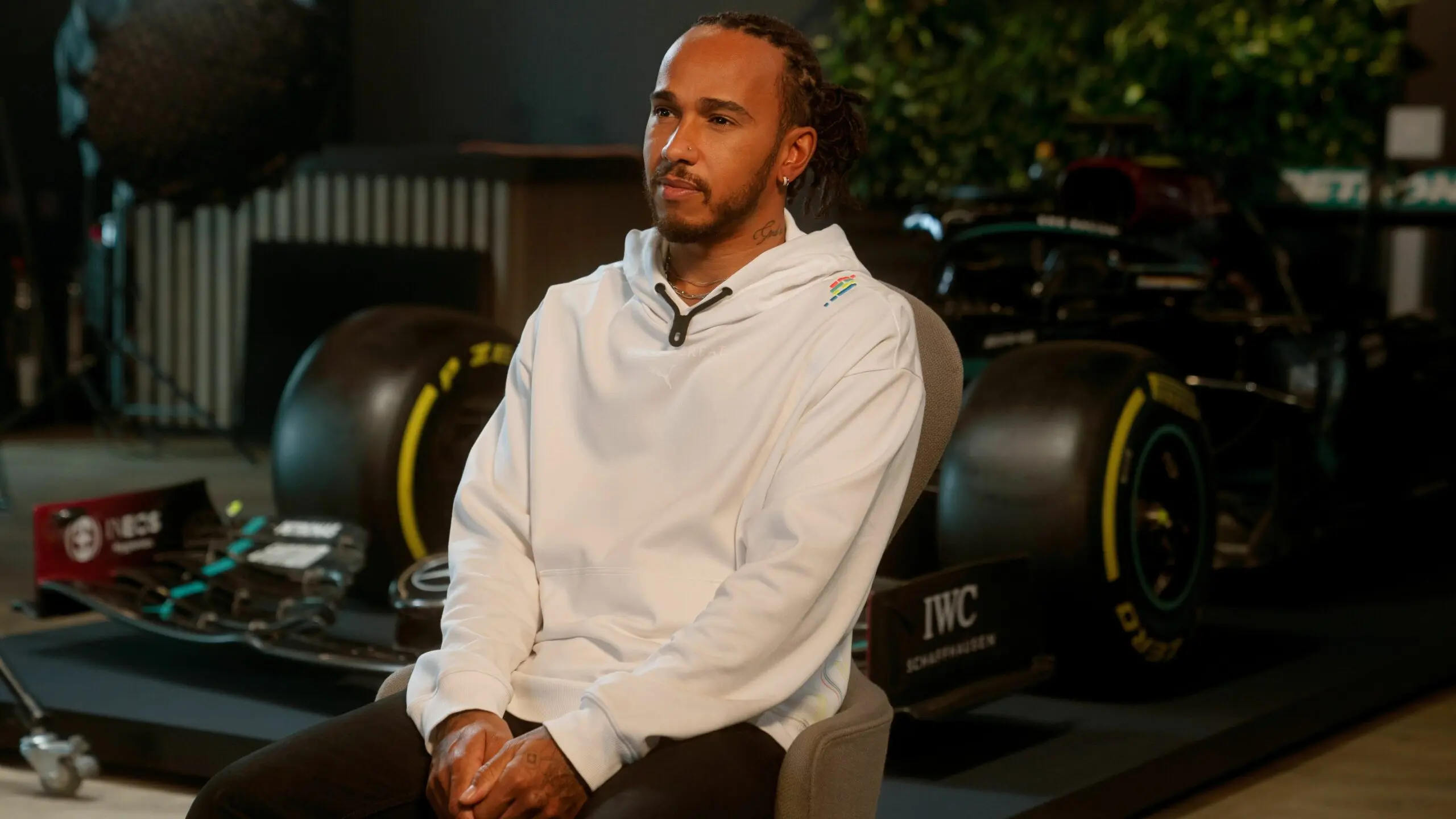
However, sources fear she may be heading down the road to heartbreak, as the Formula 1 star remains unbending with a couple of strict dating “rules” he has adopted.
The duo was seen getting cozy during their recent outing at the 2026 Super Bowl, with a body language expert explaining that Kim Kardashian was very flirty with Lewis Hamilton.
Article continues below advertisement
Inside Lewis Hamilton’s ‘Rules’ That Threaten New Romance With Kim Kardashian

Kardashian’s relationship with Hamilton has remained the talk of the town since it became public knowledge.
Having recently spent time together at the luxury Estelle Manor hotel in the Cotswolds, U.K., the pair got cozy as they attended the 2026 Super Bowl showdown between the Seattle Seahawks and the New England Patriots in Santa Clara, California, on Sunday.
For the outing, Kardashian stunned as she wore a black faux fur jacket and oversized sunglasses with a chunky choker necklace, while the F1 legend wore a black hoodie and sparkling diamond earrings.
Yet, reports suggest they may encounter some obstacles, especially because of Hamilton’s dating “rules.”
Article continues below advertisement
Sources told the Daily Mail that their relationship seems to be built on an “uneasy truce,” as Hamilton is “very firm” with the type of women he allows into his private life.
They added that he has two particular non-negotiables, which are becoming a father or stepfather, as well as having “no interest” in relocating from his more established base of London and Monaco.
Article continues below advertisement
Lewis Hamilton Operates With ‘Very Fixed Personal Boundaries’

It’s quite a contrasting situation for the pair, as Kardashian’s more established base is in Los Angeles, where she lives and does her business.
However, it appears that if anyone would compromise, just so that the relationship keeps going, it will not be Hamilton, as sources say he operates with “very fixed” personal boundaries and loves to keep things out of the public eye.
“Lewis operates with very fixed personal boundaries around how serious relationships are allowed to become,” a source explained.
Article continues below advertisement
“He is at a stage where he’s deliberately narrowing his life, not expanding it. His focus is on his legacy in Formula One and his business ventures, and he structures his personal life to protect that. The imbalance is that he is used to relationships fitting around his life, not reshaping it,” the source added.
This poses a fundamental problem for the pair, especially as the “Keeping Up With The Kardashians” alum has always spoken about how she’s looking for the right man and is looking for something more long-term.
Article continues below advertisement
Kim Kardashian Might Be Looking To Increase Her Global Appeal With The Lewis Hamilton Relationship

Following their recent flirty outing at the 2026 Super Bowl, it appears that Kardashian and Lewis have a budding romance, but reports suggest the SKIMS founder may not be with the Ferrari driver for love alone.
Having seen how her sister Kylie Jenner’s approval ratings have increased since she started dating actor Timothee Chalamet, Kardashian is also allegedly looking to improve her global appeal and thinks Hamilton is the man for it.
“She sees Lewis as stable, respected, hugely successful in his own right, someone who fits the stature she envisions for a partner,” a source claimed. “But she is underestimating how fixed his reality is.”
“He enjoys his duties as an uncle, but that is where his parental instincts begin and end. The idea of becoming a stepfather to four young children is not on the table,” they added.
Article continues below advertisement
Lewis Hamilton Told Kim Kardashian She Would Meet His Mother ‘Someday’
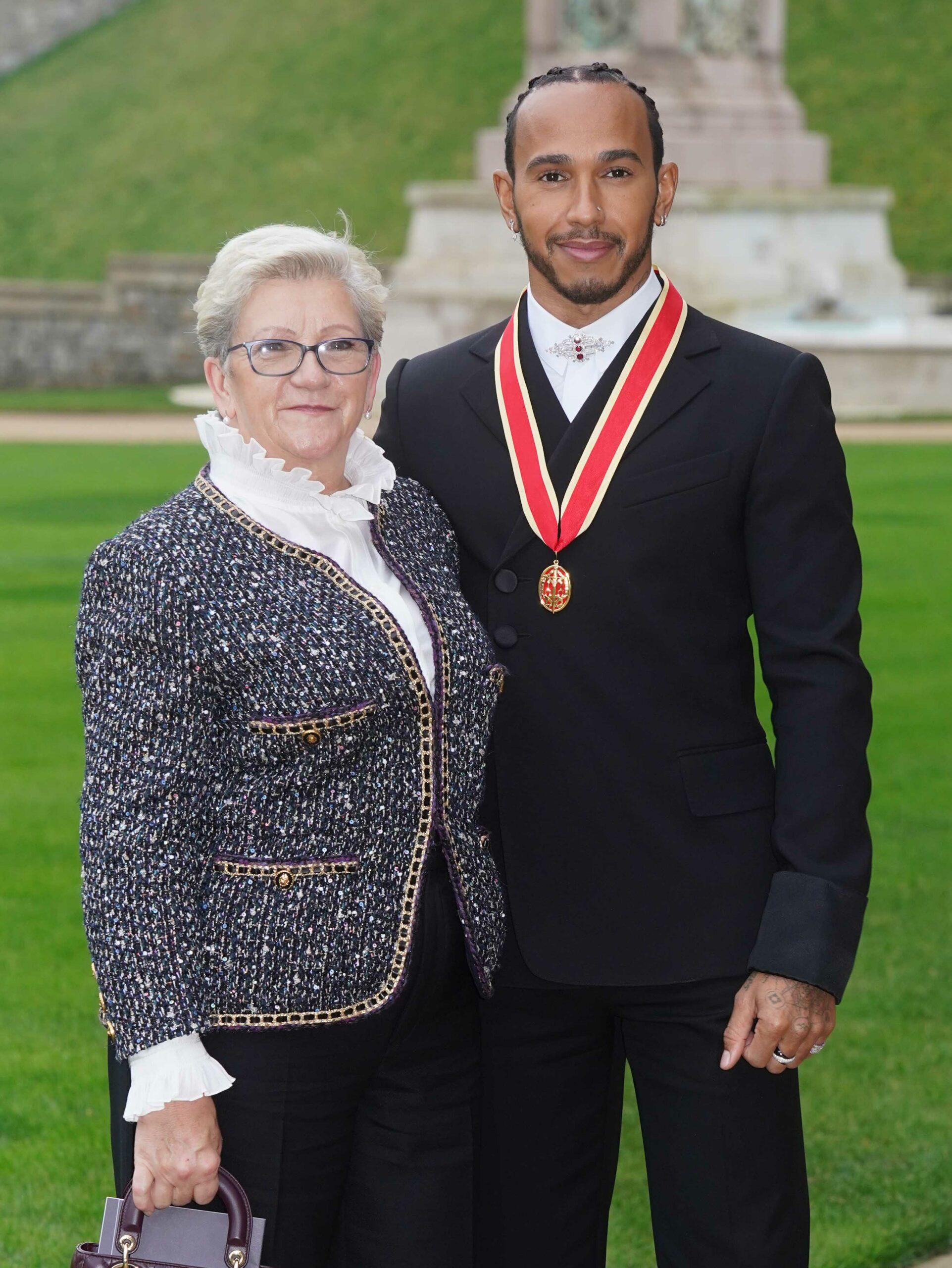
The couple managed to show just how fast they’re solidifying their relationship as lip reader Nicola Hickling decoded that Hamilton promised her Kardashian will meet his mother soon.
“No, I don’t take just any girl to my mom, I mean, you’re gonna meet her someday, she is very excited to see you,” Hamilton reportedly said to Kardashian.
Hickling added that Kardashian appeared to “shuffle uncomfortably in her seat” and covered her face “before replying with a simple okay.”
The Reality TV Star Hasn’t Introduced Her Children To Lewis Hamilton

Meanwhile, Kardashian is reportedly shielding her four children from her new relationship and has yet to introduce them to her new boyfriend.
“She doesn’t know when that will happen, if ever,” a source noted. “He has notably not introduced her to his own family.”
The insider added, “Kim has agreed to the truce, but she is a romantic at heart. He is not building his life around a ‘her.’ And she’s heading for heartbreak.”
-

 Tech7 days ago
Tech7 days agoWikipedia volunteers spent years cataloging AI tells. Now there’s a plugin to avoid them.
-
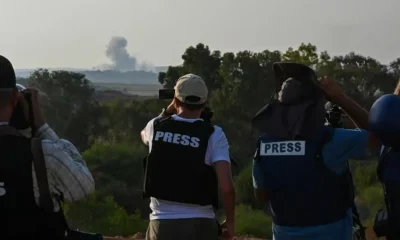
 Politics2 days ago
Politics2 days agoWhy Israel is blocking foreign journalists from entering
-
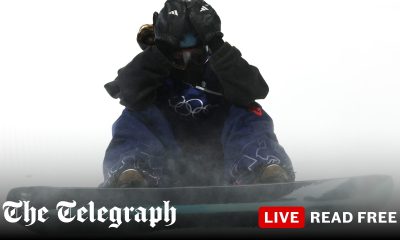
 NewsBeat1 day ago
NewsBeat1 day agoMia Brookes misses out on Winter Olympics medal in snowboard big air
-
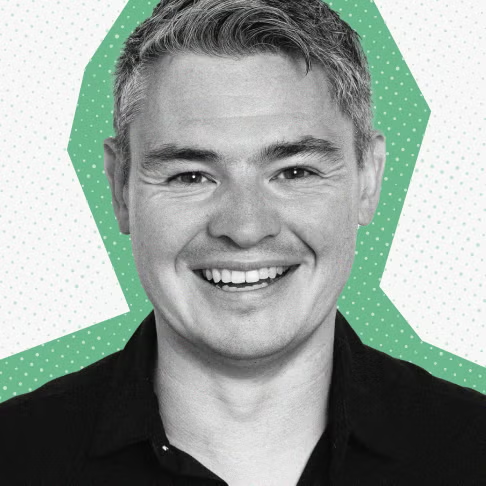
 Sports4 days ago
Sports4 days agoJD Vance booed as Team USA enters Winter Olympics opening ceremony
-
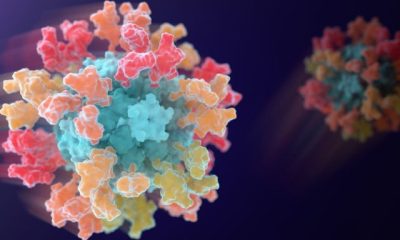
 Tech4 days ago
Tech4 days agoFirst multi-coronavirus vaccine enters human testing, built on UW Medicine technology
-
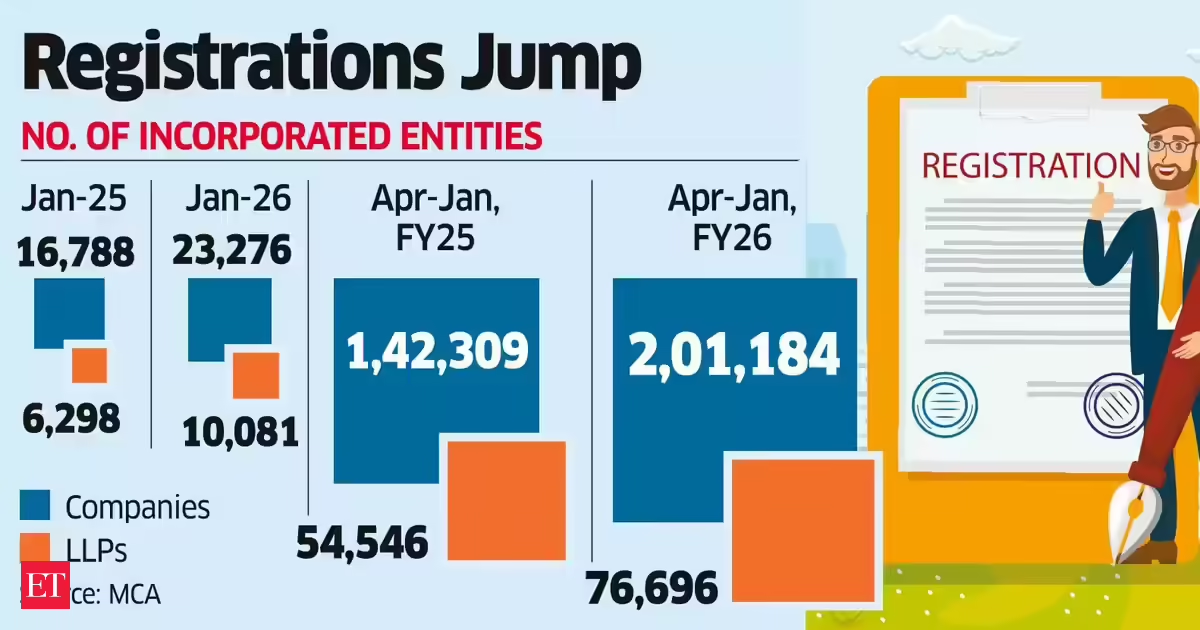
 Business2 days ago
Business2 days agoLLP registrations cross 10,000 mark for first time in Jan
-

 NewsBeat2 days ago
NewsBeat2 days agoWinter Olympics 2026: Team GB’s Mia Brookes through to snowboard big air final, and curling pair beat Italy
-
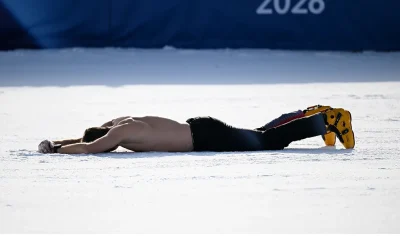
 Sports2 days ago
Sports2 days agoBenjamin Karl strips clothes celebrating snowboard gold medal at Olympics
-
Sports3 days ago
Former Viking Enters Hall of Fame
-

 Politics2 days ago
Politics2 days agoThe Health Dangers Of Browning Your Food
-
Sports5 days ago
New and Huge Defender Enter Vikings’ Mock Draft Orbit
-
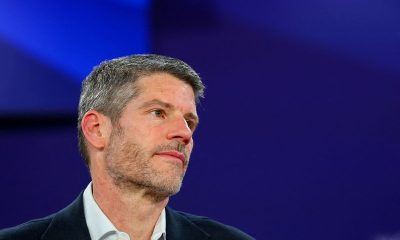
 Business2 days ago
Business2 days agoJulius Baer CEO calls for Swiss public register of rogue bankers to protect reputation
-

 NewsBeat4 days ago
NewsBeat4 days agoSavannah Guthrie’s mother’s blood was found on porch of home, police confirm as search enters sixth day: Live
-

 Business5 days ago
Business5 days agoQuiz enters administration for third time
-

 Crypto World6 hours ago
Crypto World6 hours agoBlockchain.com wins UK registration nearly four years after abandoning FCA process
-

 Crypto World15 hours ago
Crypto World15 hours agoU.S. BTC ETFs register back-to-back inflows for first time in a month
-
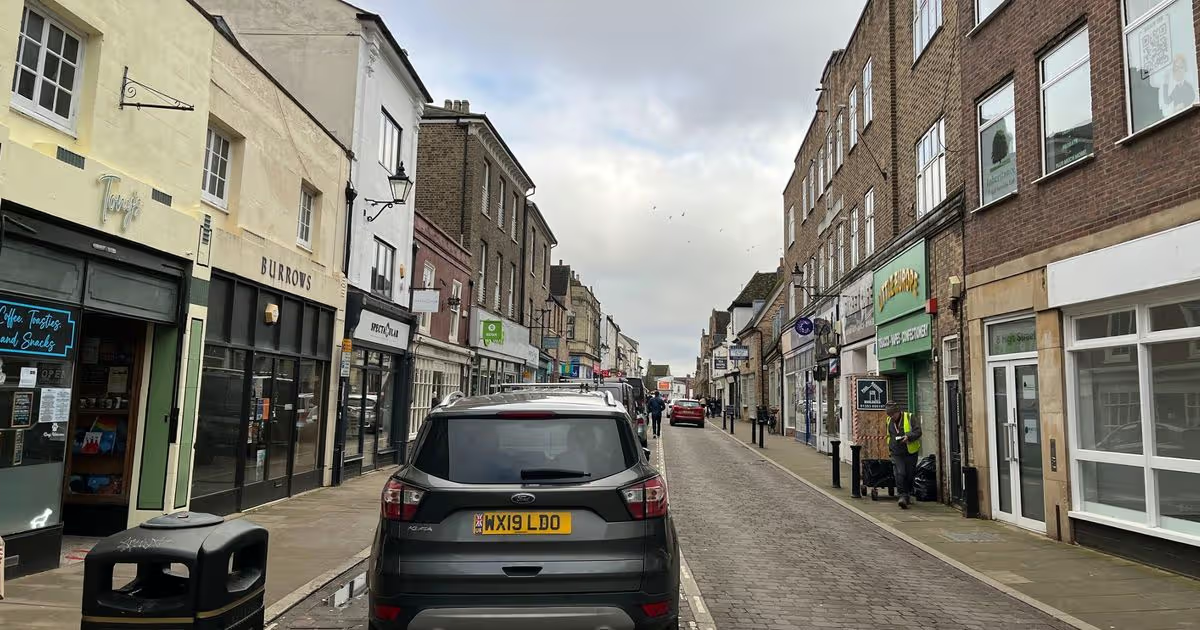
 NewsBeat2 days ago
NewsBeat2 days agoResidents say city high street with ‘boarded up’ shops ‘could be better’
-
Sports1 day ago
Kirk Cousins Officially Enters the Vikings’ Offseason Puzzle
-
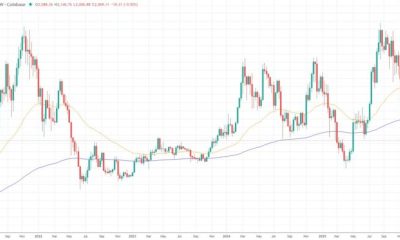
 Crypto World15 hours ago
Crypto World15 hours agoEthereum Enters Capitulation Zone as MVRV Turns Negative: Bottom Near?
-

 NewsBeat5 days ago
NewsBeat5 days agoStill time to enter Bolton News’ Best Hairdresser 2026 competition
















